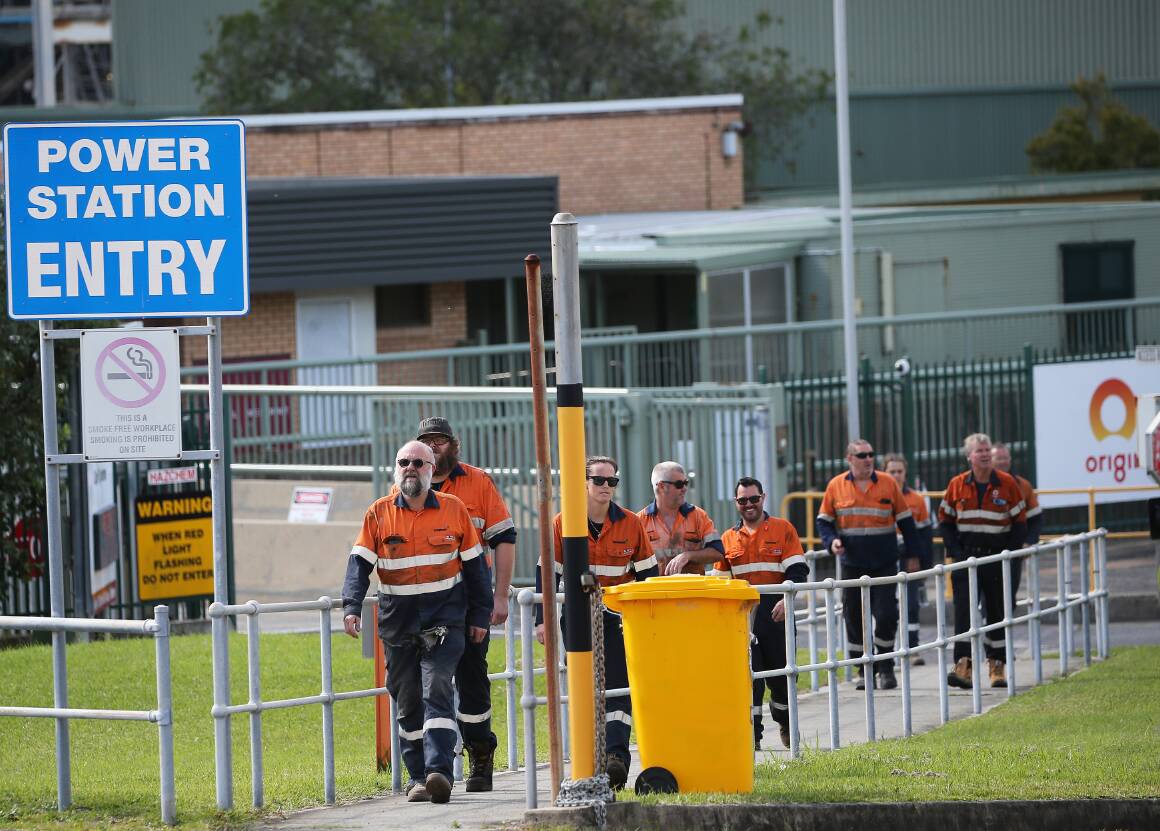
Eraring Power Station can close on time in 2025 if the NSW government takes steps to accelerate renewable energy projects, a report says.
The report, to be released on Tuesday by the Clean Energy Finance (CEF) think tank, said there was "no case to delay the planned closure of Eraring".
Titled The Lights Will Stay On, the report said electricity supply could be secured and "downward pressure" put on prices without extending Eraring's life.
This could be done by continuing the present rate of annual rooftop solar installation in NSW and boosting supply of large-scale wind and solar projects.
These measures would replace electricity generation capacity at the Eraring and Vales Point coal-fired power stations on Lake Macquarie's shore, the report says.
CEF director Tim Buckley said the greater the supply of energy capacity, "the lower wholesale electricity prices will be".
He urged NSW Energy Minister Penny Sharpe to "flood the market with renewables, firmed by batteries, to drive more capacity".
He said this would "give confidence to AEMO [Australian Energy Market Operator] and the government" around energy security.
"The lights aren't going out. The question is, will the price of power go up for the average person in the middle of an energy and cost of living crisis," Mr Buckley said.
He said people should "stop worrying about gold-plating the grid".
"We've already gold-plated the grid for 20 years. The existing grid has plenty of spare capacity."
He urged the debate to move away from "what if we have a blackout" to "how do we make sure people can afford to turn the lights on".
Mr Buckley said he was "staggered by the number of renewable energy project proposals across NSW".
Finance was "ready and available", but grid connection and approvals needed expediting to "lock in investment decisions and timely construction".
He said delays to Eraring's closure date would mean the government would be faced with big "public subsidies".
He estimated this would amount to "$200 million to $400 million" a year to help cover Eraring's maintenance, coal prices and staff costs.
Such money, he said, would be "far better invested in accelerating renewables".
He added that any delay in closing Eraring would undermine the NSW government's climate policy and federal targets for renewables and emission cuts.
The Minns government has appointed an independent expert to "stress test electricity supply and reliability" in the state.
The report, due in August, will inform the government about the "generation and transmission infrastructure" needed for "a timely and cost-effective transition of our electricity sector".
It will also gauge whether NSW can "manage any residual risks to reliability and price in the short-term, should the Eraring Power Station close in 2025".
Delta Electricity said last week that the closure of its Vales Point plant could be extended from 2029 to 2033.
Eraring owner Origin has made no change to its announcement in February last year that it intended to close the coal-fired plant as early as August 2025.
Origin will, however, negotiate with the government once the August report is released.
"We will continue to assess the market over time, and this will help inform the final timing for the closure of all four units," Origin CEO Frank Calabria said in recent comments.
"We do not shy away from the need to exit all coal-fired power generation as soon as renewable energy, storage and firming generation can replace it."
AEMO CEO Daniel Westerman said last month that investment in "firmed renewable energy" was "not happening fast enough".
Connecting new projects to the grid "urgently" was "critical to ensure consumers continue to have reliable power when they need it".
Ms Sharpe's office said last week that the "check up" of the state's power sector was still being worked on.







